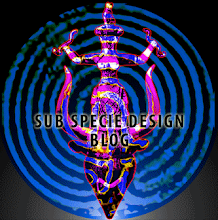Thursday, 18 November 2010
Wrap
At the end of the year 2000, I was assigned to an investigation on suicides committed among the marine force of the Greek Army. My aim was to create a poster-campaign that prevented soldier suicide. The question at that time, was: how could I convince the average, desperately disillusioned, young soldier that he should trust in friendship and love to find support, while at the same time having to lie and pretend to everyone, in order to cope with the great theater that is the military and society in effect?
Designers nowadays, are generally required to take action to maneuver branding into a socially responsible context. The implication to this, is resembling a loop, a short-circuiting that keeps progress in stasis.
What values, criteria and moral codes a brand communication designer follows, is subjectively determined by the specialized individual’s personal ideology; yet that same ideology is, paradoxically, a product of branding, too. The designer is by default a consumer him/her-self. Branding and brand communication design have therefore to be examined from an alternative, more spherical and objective point of view.
A basic consent on social responsibility standards is necessary for designers to be able to focus and handle branding in ethical context. This requires a paradigm shift in the current general perception of branding and brand communication design. Whereas branding and design ethics have been examined as processes many times before, their properties as products have been pretty much undocumented, so far. The new paradigm, a relativist framework, is the focus of my project [A paradigm, as Maykut and Morehouse defined it in 1994, is a set of overarching and interconnected assumptions about the nature of reality. (Gray and Malins, 2004)].
What is branding beyond a marketing tool and a design goal? What is it to a common individual? What does it do to society and to civilization in its entirety? Why is it there at all? And what is its relationship to ethics and social responsibility?
In 2009, I resigned from the Greek Graphics-for-crumbs regime and went back to England, to study branding. Nottingham Trent University was offering a design-approach Master's course scheme, which I would be rather more comfortable with than a business or marketing approach one, so there I enrolled.
I was going to investigate the greater narrative that branding was responsible for, focusing on ethics and socio-psychological issues like labelling and cross-culturism.
My main goal was to produce and suggest a symbolic world model (a method borrowed from Artificial Intelligence and computer science), that graphic, identity and brand communication designers can agree to use as a philosophical platform for understanding the full impact-scope of their work, enabling them to make and argue professional decisions in moral terms; enabling in greater scale, a plausible response to the 1964 / 2000 "First Things First" manifesto and the realization / fruition of the ‘citizen designer’ concept.
Design ethics begun gaining enormous importance in 2001, after the 9/11 terrorist events in the USA and the subsequent mal-justified war in Iraq. No other standards for objectivity and truth survived into 2004 than swarm (or 'network') pulls and 'viral' advertising. A further blow was struck on public's trust to objectivity in 2008, by the global inflation and economic crisis that hit the West. In Athens, urban war broke out as a result, the public turned against capitalism, authority and all kinds of civil order and establishment. The local media thrived with street stories and paranoia spread to engulf the international brand of Greece, threatening with serious harm the great brand identity of the European Union itself.
Then it dawned on me that civil order and social engineering are fundamentally depending on national branding and the expectations citizens have from their own lives as individuals and as a group. These expectations are scripted by two authors: education and advertising, ethically, categorically opposite forces. Political (or religious) propaganda and Public Relations are ineffective in a world where nobody trusts nobody. And with all the infinite possibilities arising from the lack of a basic consensus, the world is entropically pulled to bits.
If there is anything to be done to re-establish some kind of peace and order without totalitarian resolutions, then individual ethics must be targeted and social engineering must give way to identity engineering: branding. Brands define who we are, what we want and why we must cooperate and reciprocate and trust each other even if we know we are lying to each other. But brand designers are just as much in pieces as everyone else. And what's more, almost everyone with an internet profile, is consciously a brand designer. There are no hidden tricks left up the sleeve anymore. Objectivity must be taken subjectively.
It is time to stand up to the truth. It's time to admit to our lies and deal with them, face to face. Like grown ups. Or whatever.
That was my thesis. "Here to save the world" kind of thing, contra-academic.
Subscribe to:
Post Comments (Atom)


No comments:
Post a Comment
Sorry for the word verification test, I hate it too but it's kind of necessary. Please resume your trail of thought and write me a comment.